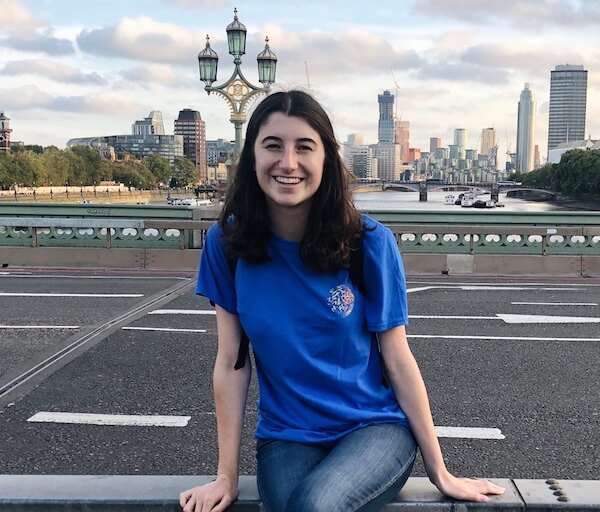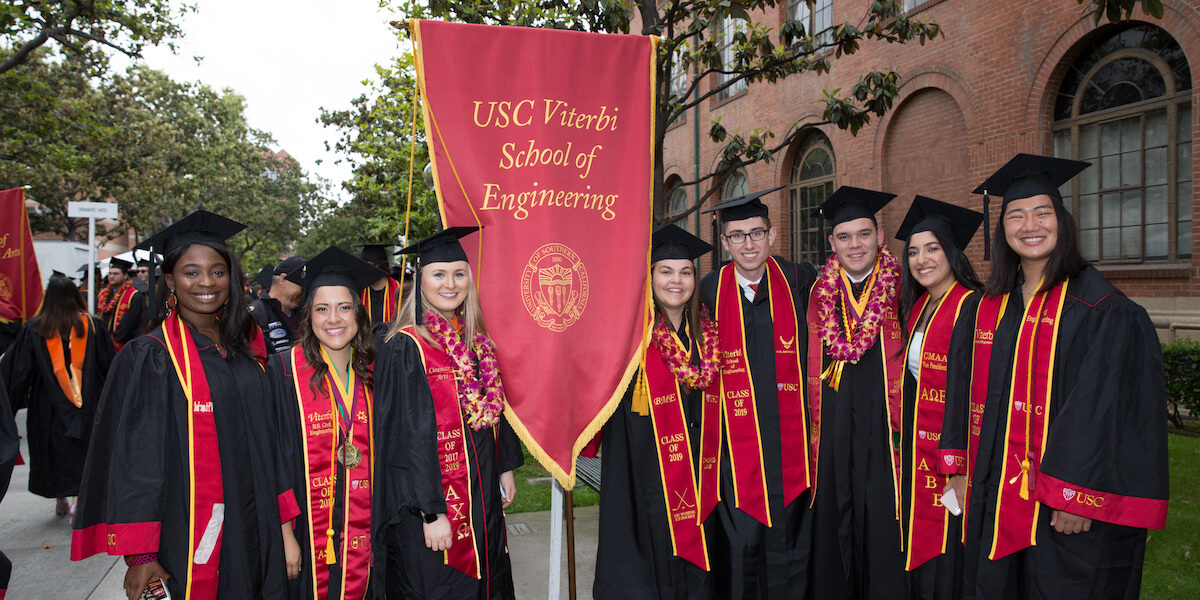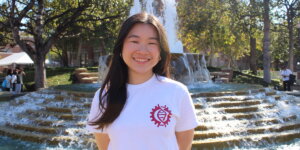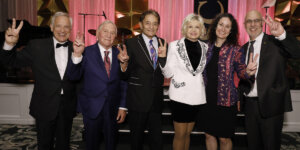As a high school student, Siena Applebaum toured some of California’s finest engineering schools. She felt underwhelmed, finding some of them filled with narrowly-focused students, while others lacked diversity.
So when Applebaum received acceptance letters from several topflight universities, including UC Berkeley, UCLA and USC Viterbi, she knew exactly where she wanted to go: Troy.
“At USC Viterbi, we can become multifaceted people and have non-engineering minors such as dance, work in research labs, and even start companies,” said Applebaum, now a senior majoring in mechanical engineering. “We’re helping to shatter stereotypes of engineers as one-dimensional, which I think is really appealing to women.”

Siena Applebaum, a senior majoring in mechanical engineering, came to USC Viterbi because of its welcoming environment, myriad opportunities and diversity. (Photo/Courtesy of Siena Applebaum)
Applebaum has taken advantage of her time at USC Viterbi. She has interned at Microsoft Corporation, Honeywell and will soon intern at Apple Inc.; served as a USC Viterbi Ambassador; worked in USC Viterbi Professor Paul Ronney’s lab; traveled to Lesvos, Greece, earlier this year as part of a five-member student team that built a low-cost shower system to help refugees; and recently represented the United States as part of Marlink – an all-female team of USC Viterbi undergraduates that is developing underwater wireless communication technology – at the Global Grand Challenges Summit student competition finals in London.
USC Viterbi’s welcoming environment, emphasis on hands-on education inside and outside the classroom and commitment to “changing the conversation about engineering, what engineering is, who we are and what engineers look like,” in the words of Dean Yannis C. Yortsos, has led to increasing gender parity at the school. Women now comprise 50% of the entering undergraduate class at USC Viterbi, a school record.
At the graduate level, the school has almost 2,000 women in its master’s and doctoral programs, leading the nation.
“As a creative and innovative discipline, with substantial societal impact, engineering benefits tremendously from the rich diversity and multitude of views, mindsets and novel approaches brought to the field by the increasingly diverse student body,” Yortsos said. “This is worth cherishing and celebrating.”
Toward gender diversity
USC Viterbi’s progress toward greater gender diversity received a major boost in 2000, when an anonymous donor gave the university $20 million, a gift that led to the creation of the Women in Science and Engineering (WiSE) program. Additionally, the Norris Foundation has supported the Viterbi Women in Engineering program each year since 2008.
Under Yortsos’ leadership, the school has become an international leader in championing the Grand Challenges, the 14 most pressing global problems identified by the National Academy of Engineering — ranging from cleaner water to sustainable energy. USC Viterbi’s role in supporting them has made it more attractive to diverse groups of students across the nation.
The excellence of the school’s faculty has also made USC Viterbi increasingly appealing to women and other students. Since 2009, the MIT Technology Review has singled out 12 of the school’s junior faculty, including eight women, as the world’s top innovators under the age of 35. In 2018, Niki Bayat, became the first USC doctoral student named a TR-35.

USC Viterbi is commited to “changing the conversation about engineering, what engineering is, who we are and what engineers look like.” (Photo/Victor Leung)
A school committed to change
Additionally, the school has led several national campaigns to bring more women and underrepresented minorities into engineering. As the chair of the Diversity Committee of the Engineering Deans Council, Yortsos helped lead a nationwide diversity initiative, now accepted by more than 210 engineering schools, that commits them to create a comprehensive diversity plan; increase outreach to K-12, community colleges, and four-year degree institutions; and encourage faculty diversity.
“Viterbi’s commitment to ‘changing the conversation’ signals recognition of historical inequities of underrepresented populations in engineering and our aim to put equity and inclusion at the core of all that we do,” said Brandi Jones, who became the school’s first vice dean for diversity and strategic initiatives in 2016. “I am elated to be a part of the Viterbi community at such a historic time, and I look forward to promoting an equity-minded approach to broaden participation of women in engineering.”
In recognition of the school’s commitment to equity, diversity and inclusion, USC Viterbi received in 2017 the American Society for Engineering Education President’s Award, a rare distinction for an engineering school.
“Engineering is the empowering discipline of our times. It drives innovation across a wide array of fields with unprecedented impact on practically everything that we do,” Yortsos said. “This evolution requires us to adopt different mindsets than in the past. It is this change of the conversation, what we call Engineering+, that helps attract more segments of the population, and increasingly women, to the discipline.”
Published on October 20th, 2019
Last updated on September 29th, 2022









